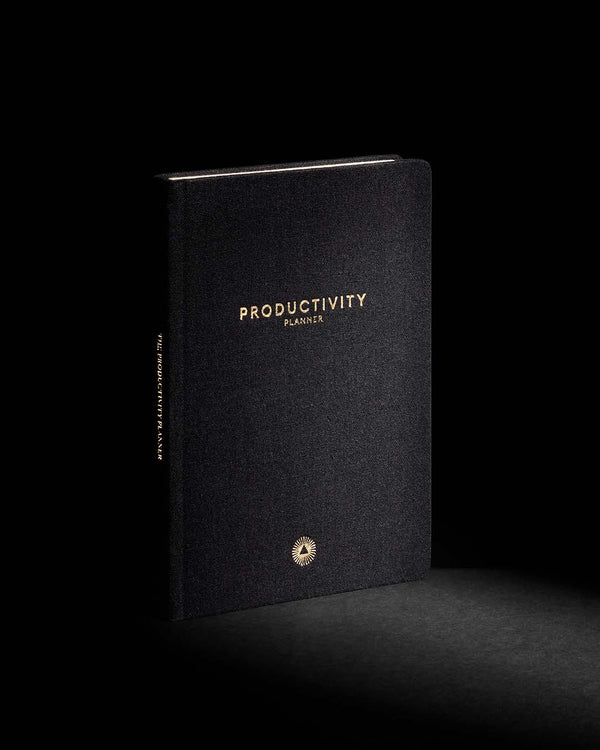New Ways to Find Happy

There are so many ideas on what it means to be happy. From Aristotle believing that it is the only goal of human life to behavioral scientists believing that it’s equal to just a momentary feeling of satisfaction, to a moderate view that happiness is more about the overall trend of the way you live your life.
If you ask us, we prescribe to the last view. We see happiness as overall life satisfaction rather than as being a person who never takes the smile off their face.
Besides giving us a sense of cheerfulness, satisfaction, and self-realization, happiness also involves knowing how to be sad, how to manage difficult emotions, and how to appreciate the little things in life. And, sometimes, this can only be learned through the experience of overcoming challenging situations and living through tough times.
In one of our previous articles about happiness, we talked about how to be happy. We discussed the different ways of thinking about happiness and shared some tips on how to achieve it. But what if you feel like you were happy once and now that feeling has disappeared completely from your life?
This time around, we want to deepen and enrich the discussion around happiness by focusing on answering the two questions:
How to restore happiness?
How to find it anew?
It’s possible. After all, happiness isn’t a constant feeling of excitement or euphoria. And regaining it starts with focusing on how we are living our life right now and what we expect from our future.
Why the New Happy?
Human life can be viewed or summed up in many ways, and one of them would be that it’s the sum of all the changes we go through over the span of our lifetime. Some changes are like milestones, such as moving out of your parents’ place for the first time, switching a career, starting a family, or having a major life insight, while other changes are smaller and easier to adapt to––having a new team member, experimenting with your diet, changing the place where you like to drink coffee on your break, and so on.
Embracing change in our lives can be exciting, but it alsoinvolves at least a modicum of stress. It also involves the change of “us”. What used to make you happy and excited in college most likely doesn’t work anymore, and the change that happened in you can seem so confusing and surprising that you can’t avoid asking yourself Why am I feeling down all of a sudden?
There are different types of changes or events that can give us the blues: the loss of a loved person, breakup, illness, and so on. Sometimes, the loss of the feeling of contentment can be tied to a series of unfortunate changes hitting you one after the other.
But regardless of your personal circumstances, digging deep inside yourself to discover the root of the problem––what exactly is making you unhappy––can help you start working towards making a change for the better.
How to Find the Root of the Problem
Before you start working on restoring your happiness, you should discover what made you unhappy in the first place. You can start very simple, elementary school level simple. Take a piece of paper, split it in two, and make two lists. One should state all the things that make you happy and the other all the things that make you unhappy. Create a contrast and clearly classify your thoughts about happiness and unhappiness.
This list should give you an insight into the aspects of your life that could use some improvement.
Here is an example of what this list could look like:
|
Things that make me unhappy |
Things that make me happy |
|
Thinking about other people and comparing my successes to theirs |
Growing as a person and analysing my progress |
|
Lack of social contact |
Meaningful relationships with people that share the same values |
|
Lack of productivity |
Smart planning, time management, and productivity |
|
Spending a lot of time on social media |
Spending time practicing self-care and enjoying little daily rituals |
|
Self-doubt |
Knowing my abilities and believing in myself |
|
When I’m not being valued at work |
Doing the meaningful work and feeling appreciated |
|
Arguments with friends and/or family |
Fun activities with people I love (like board games, walks, travels, movie nights, etc.) |
|
Not doing enough of the things I love |
Having plenty of time to enjoy myself |
Of course, your list can look however you want. The more specific you get, the better. For example, if you often find yourself comparing yourself to others, this can easily be the source of your unhappiness, but you can also search for deeper reasons: Why are you doing it in the first place?
The list can be a nice way to reflect on everything you’ve been through over a certain period in your life and remember as many details as you can.
How did you use to resolve your problems in the past?
What kept you going through stressful situations?
Is any of that still applicable now?
And what is the current state of things? What are your exact feelings and thoughts, are you ashamed, alone, or not loving yourself enough for some reason?
Write all that down and prepare to move from thought to action.
How to Find a New Happy: Tips and Tricks
Once you have identified the source of your frustration or unhappiness, you can start searching for new ways to get one step further into finding your new happy.
Here are some of our tips.
Whose Happiness?
That answer is yours, and yours alone.
Maybe your struggles originate from the fact that your idea of happiness is colored by others’ ideas on what happiness means. It may be imposed by certain societal norms, your parents’ opinions, your partner’s desires, or your friends’ lifestyle that is so different from yours.
If this is the case, perhaps you should return to your list and think about what you’ve listed there once again. What is your happiness? What is it that brings a sense of meaning to your life?
Use your own words and terms and define what happiness means to you. It can be one word or particular emotions, or certain states. Focus on yourself and your needs. Once you’re there, proceed with some of the following ideas.
Incorporate a New Hobby
Perhaps what makes you happy is not really suitable to become your profession, but it may become a new hobby.
If learning new things is the answer, would you consider enrolling back in school to study your interest? Or perhaps engaging in an online course for learning a new skill or language?
The answer here can be anything: reading books, talking to friends, hiking, playing tennis, or painting.
Make sure that you dedicate time to doing something that makes you feel fulfilled, and it can go a long way in helping you rediscover your happiness.
Think About Your Values
If you’ve gone through a change that has caused you to lose interest in the things that might have been your previous sources of happiness, perhaps you’re no longer living in line with your values. Maybe it’s also time to redefine your values, define your principles, and check whether you’re meeting them appropriately.
Keep an Eye on Your Health
Sometimes, we may be doing what we love but, when we sacrifice other important aspects of our life, it can reduce our happiness.
For example, you may be enrolled in your dream university program, but spending way too much time with your nose in a book while neglecting your body’s needs for movement, healthy food, and social activities can result in feelings of unhappiness and discontent. In the long run, this can have a negative impact on your health.
This means that you should find the way to balance out your lifestyle and make sure that all of the basic needs that are necessary for you to remain healthy are met because your well-being is your key to living a fulfilling, happy life.
Focus on You
If there are things in your life that make you acutely unhappy, you should consider letting them go. Regardless of whether it’s a partnership, a friendship, or maybe even a job, if you know it's the source of your sadness and anxiety, you may need to say good bye to them for the sake of your long-term happiness.
This doesn’t have to (and shouldn’t) happen overnight. Think your steps through thoroughly and see what would be the least painful and best possible option for all parties involved.
Falling off the track you were on and getting lost in obligations, problems, or simply a new set of circumstances can happen to anyone. But you have the power to retake control and make a positive change.
Happiness is reversible, because your happiness only belongs to you. And only you need to be the one questioning it, defining it, and setting it into motion.







